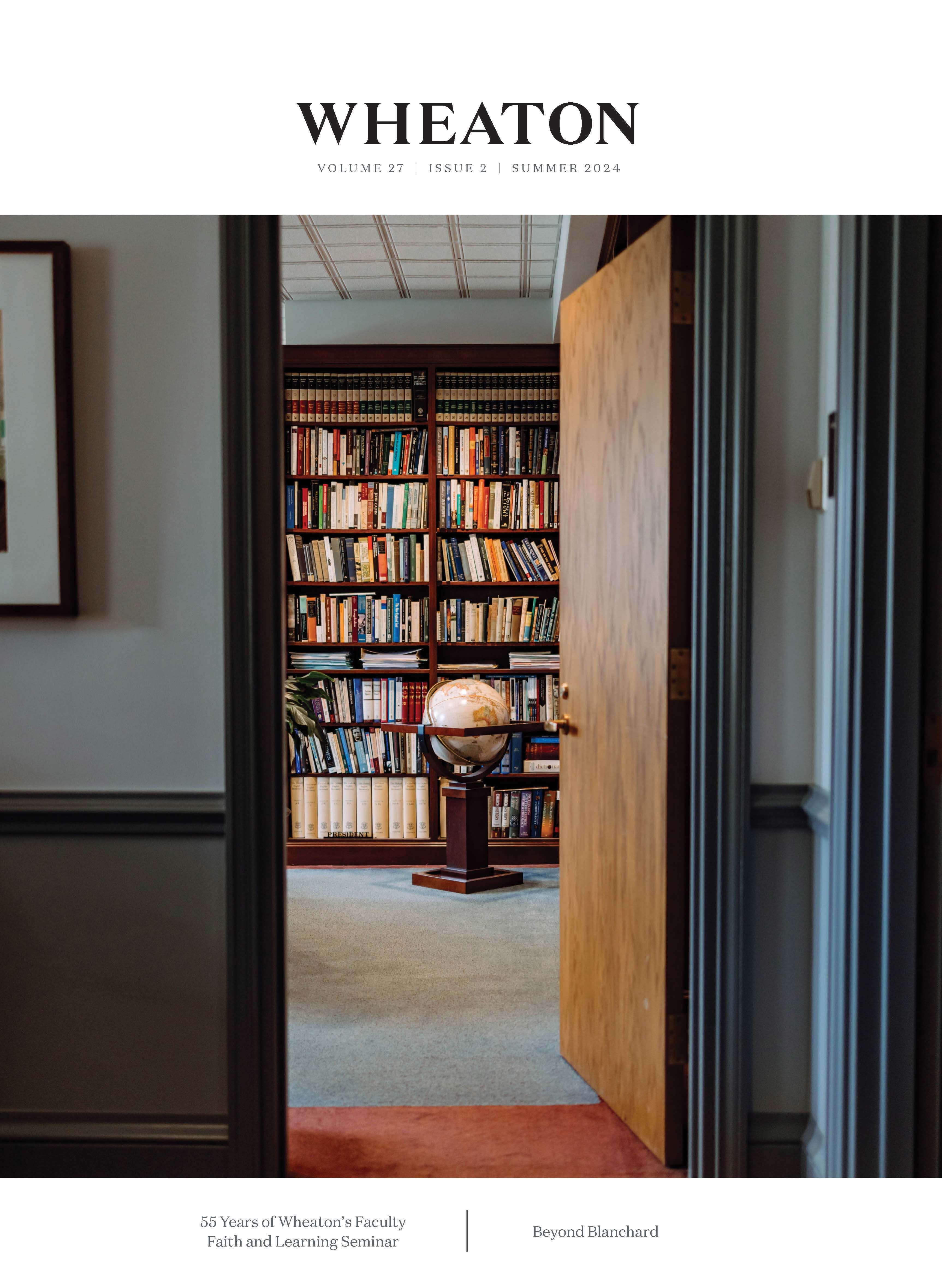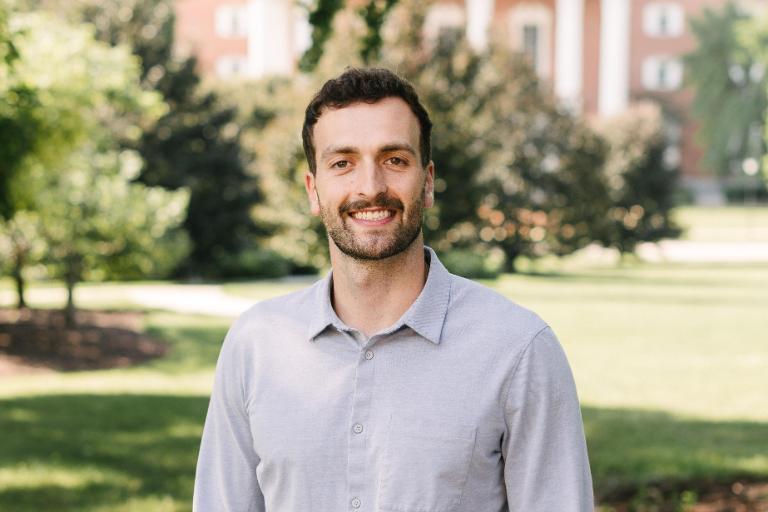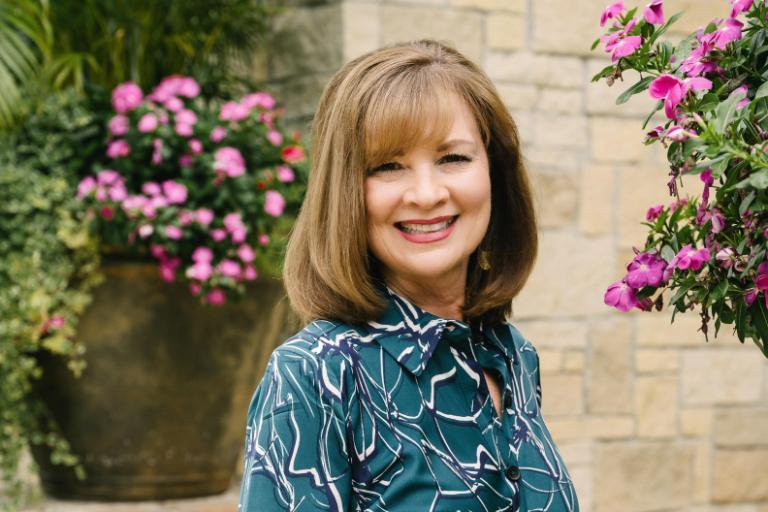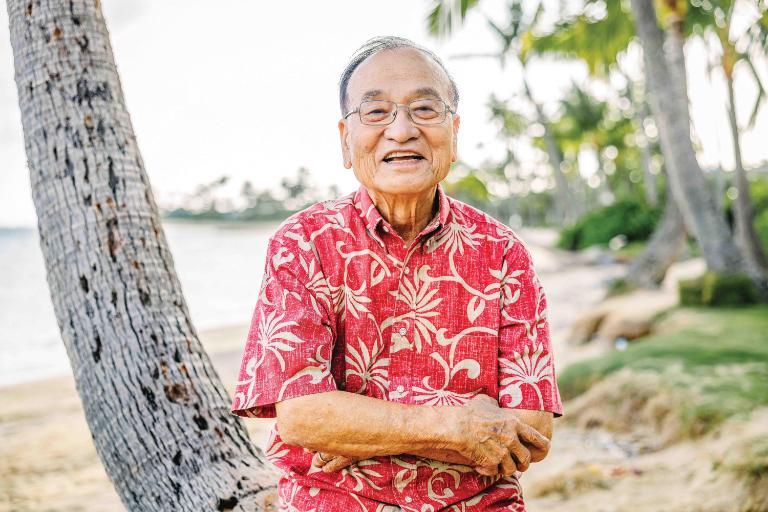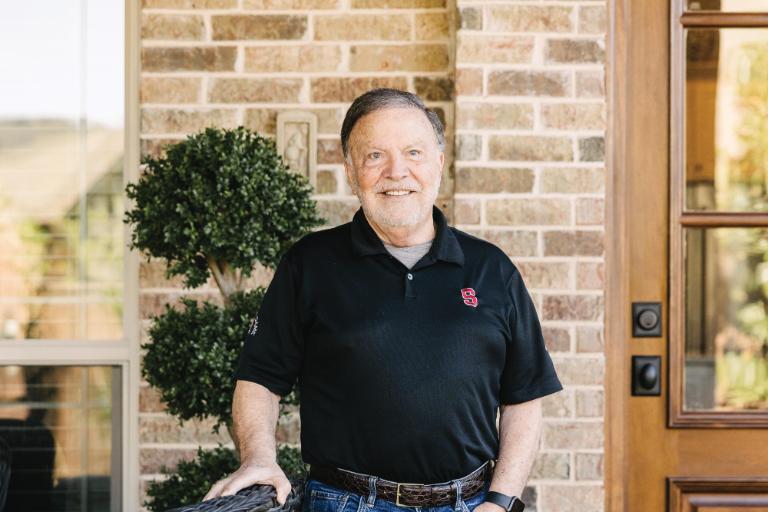For the Rich in Faith
For raising up leaders in urban ministry and following Jesus’ heart for the invisible through his life and ministry, Rev. Dr. Don Davis ’88, M.A. ’89, is the 2024 Alumnus of the Year for Distinguished Service to Society.
Words: Kailin Richardson ’20
Photos: Darrin Hackney
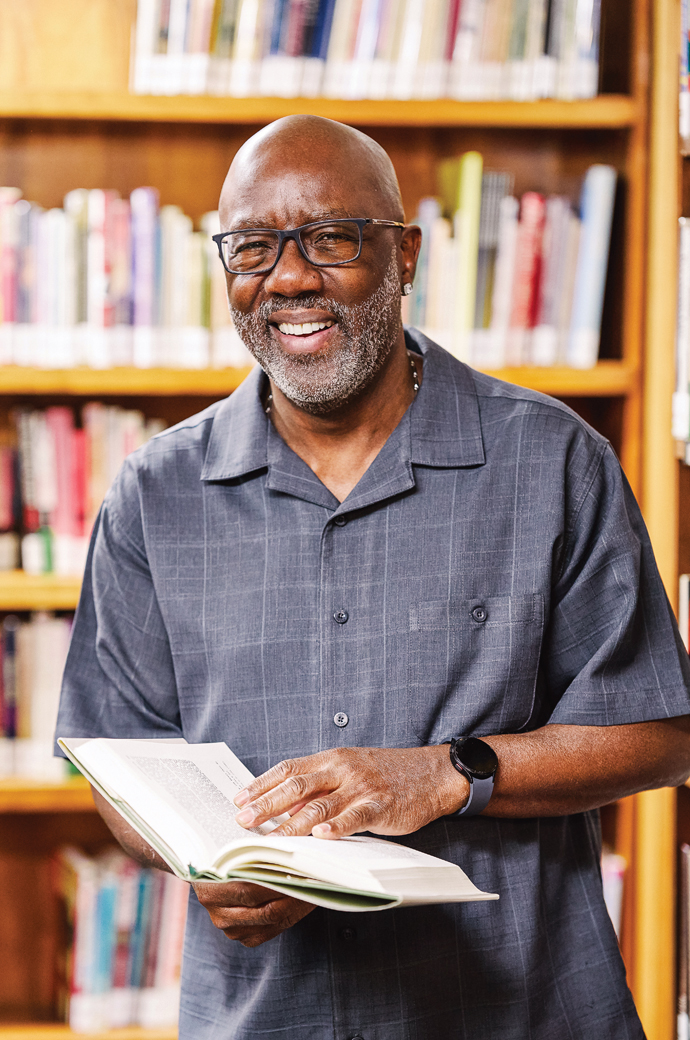
Rev. Dr. Don Davis ’88, M.A. ’89
Wheaton College Alumnus of the Year for Distinguished Service to Society
“Jesus said if you throw a party, do it for the people who can’t pay you back.”
When Rev. Dr. Don Davis ’88, M.A. ’89, paraphrases the parable of the wedding feast from Luke 14, he means it. He will soon celebrate the 50th anniversary of his time in ministry and currently serves as the senior executive advisor to the president at World Impact, a global organization dedicated to training pastoral and ministry leaders in urban churches. Across these decades of ministry, Davis has committed himself to creating theological learning opportunities for students from marginalized urban communities, making good use of his Wheaton degree in systematic theology. But when most Wheaton students were in college during their early twenties, Davis was already jumping into a life of ministry.
His story doesn’t begin on Wheaton’s campus. It doesn’t begin with a dream to share the gospel or a desire to be in higher education. It doesn’t take place in one of the country’s largest cities. Instead, it starts in the 1960s in Wichita, Kansas, a city whose economically depressed neighborhoods were experiencing violence and riots at that time.
This is where Davis grew up and met his wife, Beth. The chaos in their Wichita surroundings echoed the turbulence in their own lives as they were involved in drug culture. When he was initially drawn to Jehovah’s Witness by the moral change he saw in a dear friend, Davis’ life began to shift. Later, when Davis and his wife became Christians, they lost their friends and entered a period of instability as they reoriented themselves around following Jesus.
Davis joined World Impact as a brand-new Christian in his twenties with a compelling interest in joining the ministry world and an insatiable need to understand Scripture. He found he had a deep and natural love for studying the Bible, and he lost himself in it. Before he knew it, he was teaching the Bible to and training men who were from the communities he had just left behind.
Between 1975 and 1985, he and Beth served as spiritual leaders in their community while Davis also served as the director of World Impact. But even as he studied and taught Scripture with confidence, he wanted more formal theological training.
In 1985, Davis enrolled at Wheaton College with a decade of ministry experience as the class’s oldest freshman. Soon, he was simultaneously taking undergraduate- and graduate-level Bible and theology classes at Wheaton, as well as teaching a Bible class.
He took as many credits as possible each semester, he and Beth both had jobs, and they lived in campus housing to make it work financially while raising their three kids. “You could have John the Baptist as a reference. You could have raised someone from the dead the week before,” Davis chuckled. “But if you don’t have the money, you can’t attend a school like Wheaton.”
Although this was an exciting, albeit challenging, opportunity for Davis, the transition from working directly with local communities to Wheaton’s higher education context was jarring. Despite Wheaton’s historical attention to the marginalized, there weren’t established scholarships or institutes focused on the domestic urban poor. Chicago was next door, with struggling neighborhoods and a huge minority population, but when Davis tried to rally others in his program to teach Bible classes at a church on the South Side, he couldn’t gather enough interest.
This baffled Davis, as it seemed disconnected from the very theological framework he had embraced. James 2:5 (ESV) says, “Listen, my beloved brothers, has not God chosen those who are poor in the world to be rich in faith and heirs of the kingdom, which he has promised to those who love him?” and this admonition was central to Davis’ understanding of missiology. “Does it actually matter whether you do theology in an air-conditioned Billy Graham Hall, or on a dirt floor in Guatemala or Tanzania?” Davis asked.
Place was increasingly important to Davis’ work, and Billy Graham Hall, which houses the Wheaton College Graduate School, was still a space where he could ask these questions. On day one of his Survey of Christianity class, he raised his hand and asked what Dr. Mark Noll ’68 meant by “survey of Christianity.” European Christianity? Asian Christianity? Were they going to look at the African church? The honest answer—European Christianity—only pushed Davis to pour himself further into developing a systematic theology that centered on the invisible.
The gap between where he had come from and where he was studying continued to shape his vision of what it meant for churches and communities to share the gospel. “Wheaton was not only good biblical, exegetical, and canonical training,” said Davis. “It was also really good for me philosophically and missiologically. I wanted the purest theory I could get on, ‘How do you transform the world from the bottom?’”
Zeroed in on this, he went on to earn his Ph.D. in theology and ethics at the Iowa School of Religion. Although he loved the world of academia deeply, he was committed to making a change so that others could learn, too, even without access to higher education. “If there’s going to be a genuine advancement of the kingdom in the poorest communities on earth, we have to find a different way,” said Davis. “A more elegant, sustainable, faster, and certainly cheaper way to equip leaders and Christian workers in communities of poverty.”
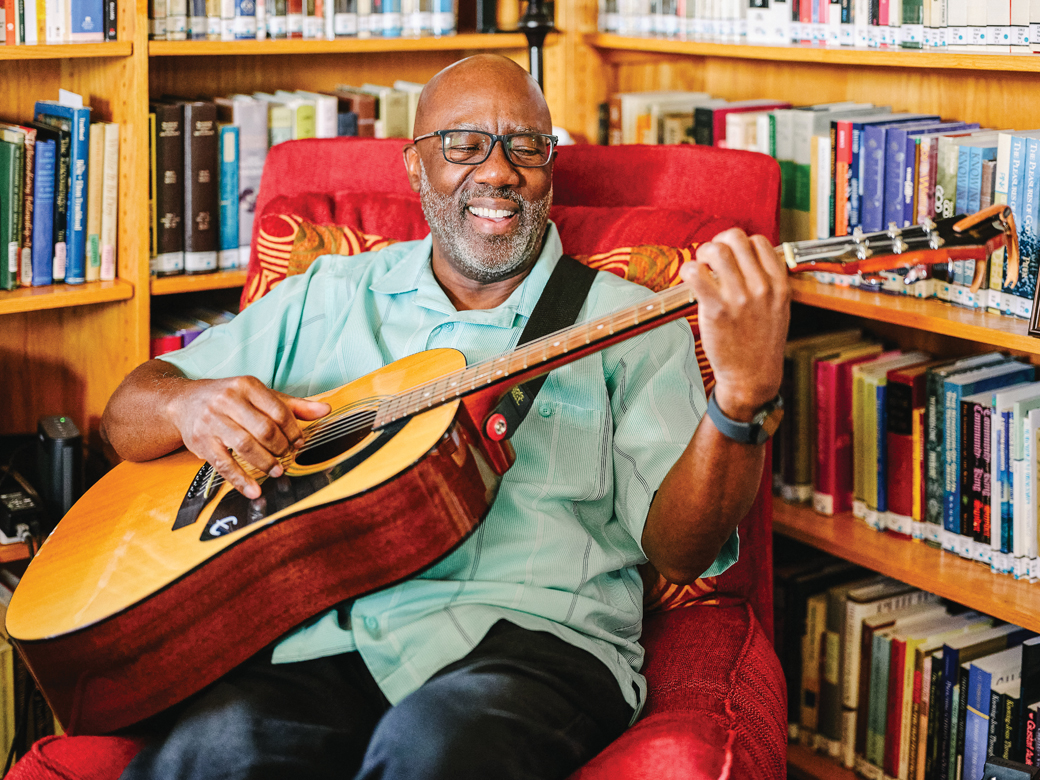
Rev. Dr. Don Davis ’88, M.A. ’89 at his home in Kansas.
Enter The Urban Ministry Institute (TUMI). In 1989, as Davis was completing his master’s at Wheaton, the president of World Impact called with some exciting news. World Impact had just purchased 16 acres of land in Wichita, and its leaders wanted Davis to start his institute on the new campus. Six years later, Davis began teaching classes in the city that was the center of his own story.
This meant writing curricula for an expansive audience. Davis jumped into writing pages for the communities he was serving, designing “the entire infrastructure for a denomination to start its own training centers.” This infrastructure now serves some of the most diverse communities in the world and is made up of “satellites”—training centers that each have their own identity and community focus while offering accessible biblical education.
Each satellite operates within local neighborhoods, connects with other TUMI partners, and welcomes students who can’t afford to pay for theological training at traditional seminaries or other Christian higher education institutions. TUMI remains non-accredited to keep courses affordable. But they also partner with other schools, such as Fuller Seminary, Cairn University, CityVision University, and Dallas Christian College, that offer satellite students credit after they complete TUMI’s seminary-level capstone curriculum. With core programs such as church-based seminary, urban church planting, and prison ministry, TUMI engages with some of the most overlooked yet passionate Christians who are called to teach and train others for gospel ministry.
Today, World Impact’s Church-based Seminary (i.e., TUMI) has 375 satellites in 18 countries, 79 of which are in prisons, jails, and correctional facilities. Evangel School of Urban Church Planting (World Impact’s church planting ministry, founded by TUMI) currently has 755 church planting teams equipped domestically and internationally, including in Bangladesh, Tanzania, Mexico, Pakistan, and Ethiopia. As Davis continues to create a model of learning designed for communities that are unable to pay for school, he finds again and again that they are “unquestionably to me the most valorous, courageous, remarkable Christians on earth.”
This sincere posture of awe toward both his peers and his students characterizes him not just as a scholar, but also as a shepherd. This is something Hasana Pennant Sisco ’86 can attest to, having studied alongside Davis when he was a freshman at Wheaton. She and Rodney Sisco ’84 forged a close relationship with Davis when he pastored their multiethnic church in Wheaton during the late ’80s. From this relationship, Hasana paints a picture of a man committed to learning and honoring each individual’s unique background. “A few words I could use to describe Don Davis: integrity, scholarship, biblically authentic, conscious of his identity, and a man of God,” she said.
Davis strikes a balance of intelligent curiosity and deep care, challenging himself to forge compassion with brilliance. Although the gap between his desire to study Scripture and his ability to pay for Wheaton was, in part, the motivation for founding TUMI, he couldn’t serve urban communities without the questions he was able to ask there, the classes he took, and the professors with whom he built relationships. But he never wanted to leave the gospel behind those walls when there were many rich-in-faith communities to pour into. At the end of the day, he believes that “you should be able to fulfill the dream of what God wants you to do without going into debt.”
His passion for and commitment to his dream continue to be a valuable resource for Christian leaders across the country. Davis’ fellow alumnus L. Brian Jenkins M.A. ’93, founder of Entrenuity, helps adults and youth in Chicago learn the skills they need to start small businesses. He became friends with Davis in Iowa, and this relationship led Jenkins toward Wheaton College and his work in the city today. “Don helped me shift my focus from myself and my desires to seeking God’s direction for my life in an urban context,” Jenkins said. “He is a person who has devoted himself entirely to the Lord Jesus Christ and his kingdom.” Davis became the mentor Jenkins needed when Jenkins first entered full-time ministry: a teacher and a voice for the vision of a people committed to the kingdom of heaven, regardless of what’s in their pockets.
“With God’s heart of compassion for the city, Davis has been a ministry leader in almost every aspect of kingdom work both inside and outside the church,” said Wheaton College President Philip Ryken ’88. “In honoring him, we honor all the Wheaton alumni who have answered God’s call to serve urban communities with truth and mercy.”
Davis has pursued an academically and spiritually rich ministry wholeheartedly for nearly 50 years. He has taught at and partnered with prestigious institutions across the country. Yet, ultimately, his heart is for those who are “invisible and voiceless,” those who depend on God alone—those who felt they could never realize their dream of stepping into such classrooms.
“To be a Christian is to be tough-minded—really tough-minded—but tenderhearted,” Davis said. “My prayer is that Wheaton would follow the example of the Nazarene: Be humble. Sacrifice its gifts. Always make room for people who can’t pay Wheaton back.”
